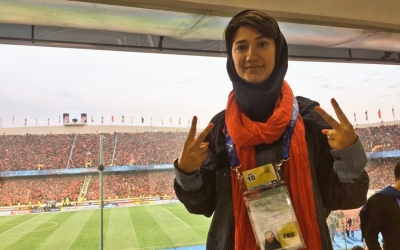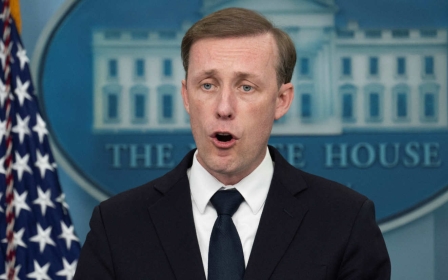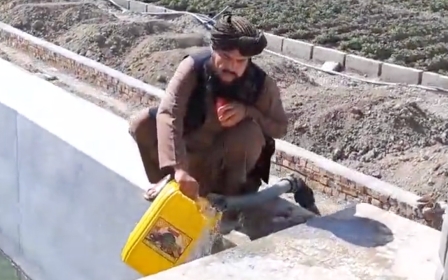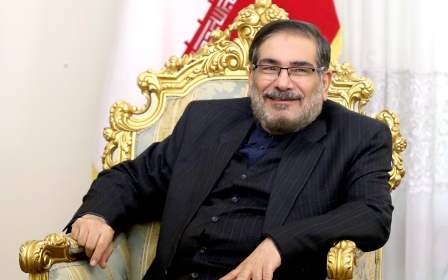Mahsa Amini: Trials of journalists who broke story begins in Iran
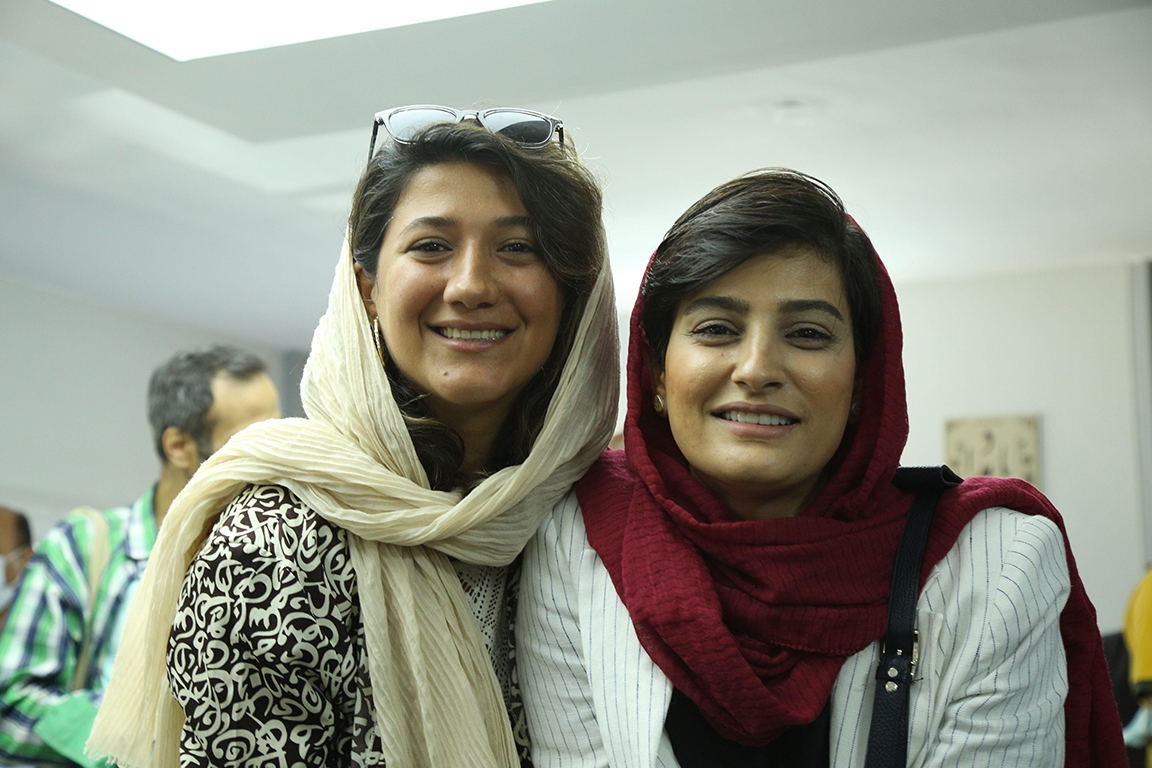
The two journalists who broke the story of the killing of 22-year-old Kurdish woman Mahsa Amini in Iran are set to appear in court this week.
Elaheh Mohammadi and Niloofar Hamedi have both been in prison for months, with restricted access to lawyers and family, since their coverage helped spark off mass anti-government demonstrations across the country.
Mohammadi was set to appear on Monday, while Hamedi's court date is set for Tuesday.
Her lawyer Shahab Mirlohi told AFP that Monday's session had been "positive", without giving further details and said the date of the next hearing would be "announced later".
The date of the trial was announced by Masoud Setayeshi, the spokesperson of Iran's Judiciary, during his press conference on May 23, where he promised that "according to the laws and regulations, the case of these two journalists will be thoroughly and promptly investigated and determined".
New MEE newsletter: Jerusalem Dispatch
Sign up to get the latest insights and analysis on Israel-Palestine, alongside Turkey Unpacked and other MEE newsletters
However, despite detaining the two for over eight months, Iranian judicial authorities have provided little information on their status.
During this period, Niloofar and Elaheh have been denied access to their lawyers, and their meetings with family members have been heavily restricted.
Although the judiciary spokesperson released this news to the media less than a week before the court hearings, the family members said restrictions were still in place.
“The conditions for Elaheh's family are extremely difficult," said one of Mohammedi's relatives, speaking to Middle East Eye on condition of anonymity.
"They are experiencing confusion and desperation, filled with worry for Elaheh and unsure of how to put an end to this ongoing nightmare.”
Iran had been gripped by a wave of protests since Amini's death in September 2022, which were some of the biggest to hit the country since the 1979 Islamic Revolution. But a combination of mass arrests and executions has seen the demonstrations largely peter out.
According to the Norway-based organisation Iran Human Rights (IHR) 278 people have been executed this year alone, while the International Federation of Journalists said 13 journalists were currently in jail.
However, anger over the woman's death - which came after she was detained for "inappropriate hijab" - still lingers across the country and many more women have begun publicly flouting the Islamic Republic's headscarf laws.
Mohammadi, a reporter for the daily Ham Mihan, was arrested on September 29 after going to Saghez in Iran's Kurdistan province where Amini's funeral had been organised and where one of the first demonstrations took place. Hamedi, who worked for the reformist Shargh Daily, was arrested a few days earlier after going to the hospital where Amini had been left in a coma.
On April 26, the spokesperson of Iran's judiciary provided an update on the case of the two journalists, stating that the indictment has been served to the accused.
The charges against them, he said, included cooperating with the US government, engaging in actions against national security, and conducting propaganda activities against the Islamic Republic.
The two have denied all charges.
Calls for an open trial
A friend of Mohammadi, who preferred to remain anonymous, said "Elaheh, her lawyer, and her family were unaware of the court's schedule and learned about it through the media."
"Nonetheless, after months of uncertainty, holding a trial is better than remaining indecisive. However, Elaheh's family desires an open court where attendance is not prohibited."
Shargh Daily also called for the trial to be held in public, as have the Association of Journalists of Tehran Province.
The demands for a public trial provoked an angry backlash from the pro-government Kayhan newspaper. The paper's front page spread lashed out at "reformists", accusing them of "seeking a new excuse for controversy and criticism of the judiciary by requesting an "open trial for two journalists".
A friend of Niloofar Hamedi, who wished to remain anonymous, told MEE that the journalist had "maintained her resilience" despite everything.
"In the communications [that] family members have had with her, she remains strong and has no doubts about the correctness of her actions despite months of detention," said the friend.
Middle East Eye delivers independent and unrivalled coverage and analysis of the Middle East, North Africa and beyond. To learn more about republishing this content and the associated fees, please fill out this form. More about MEE can be found here.


